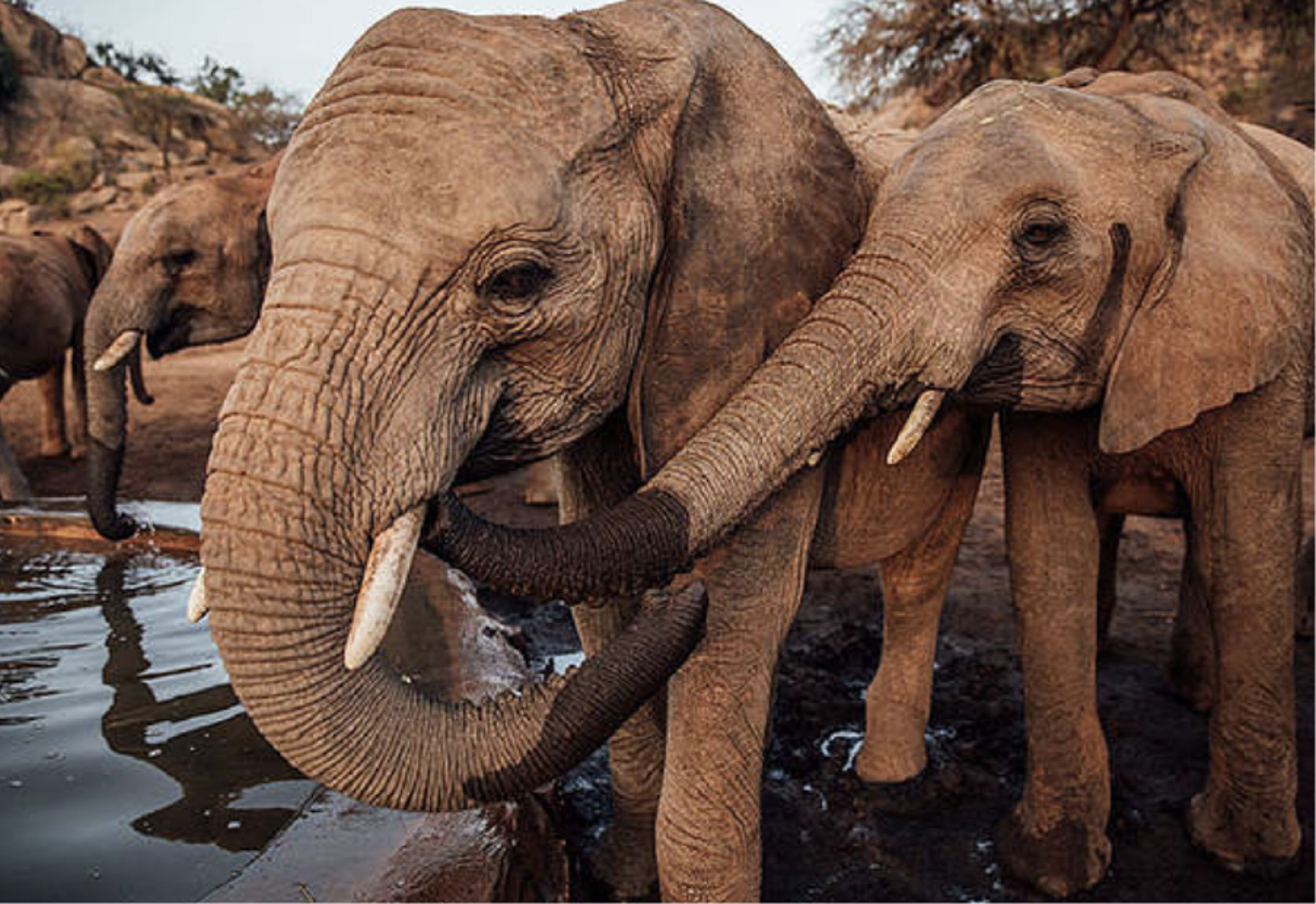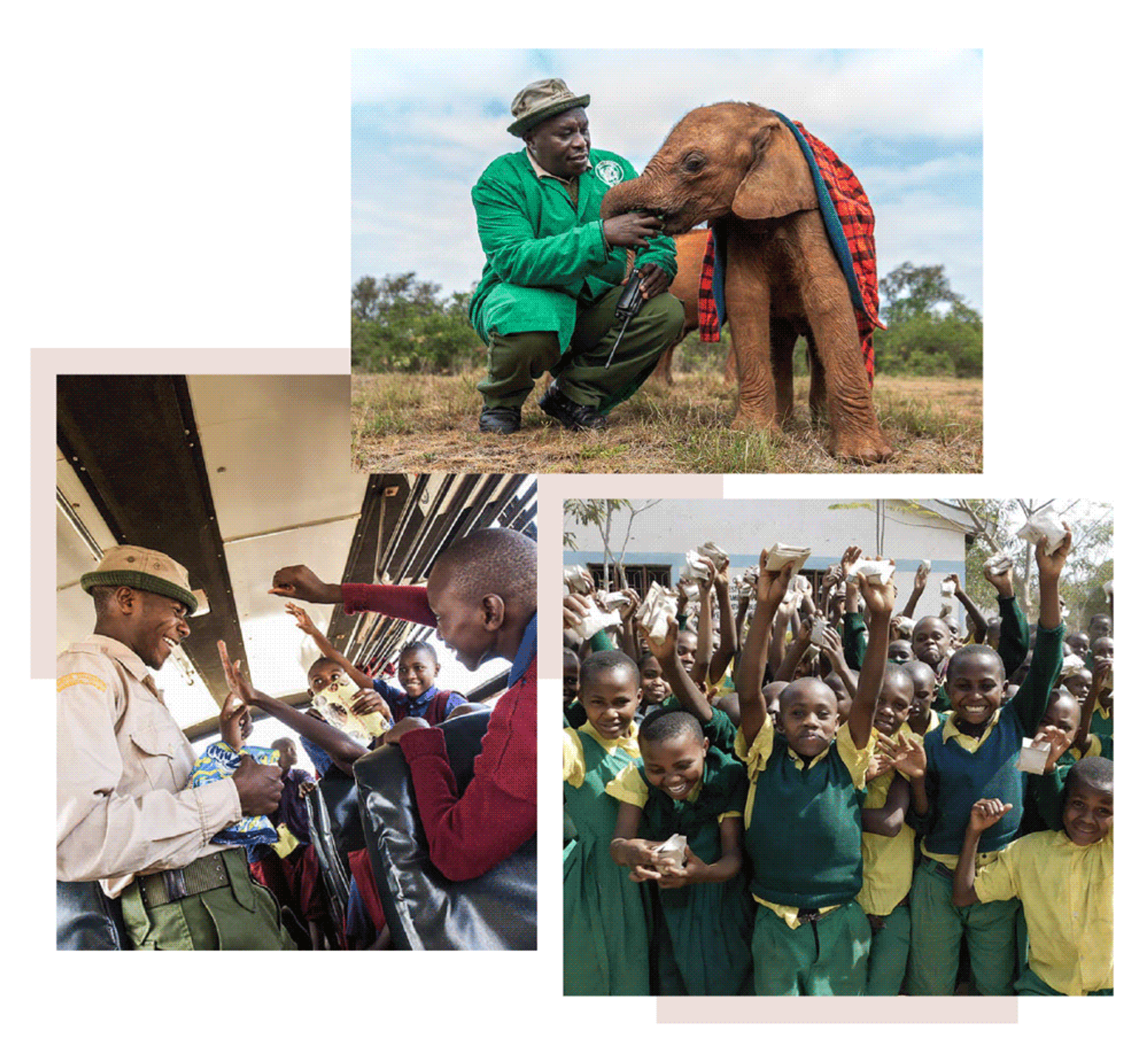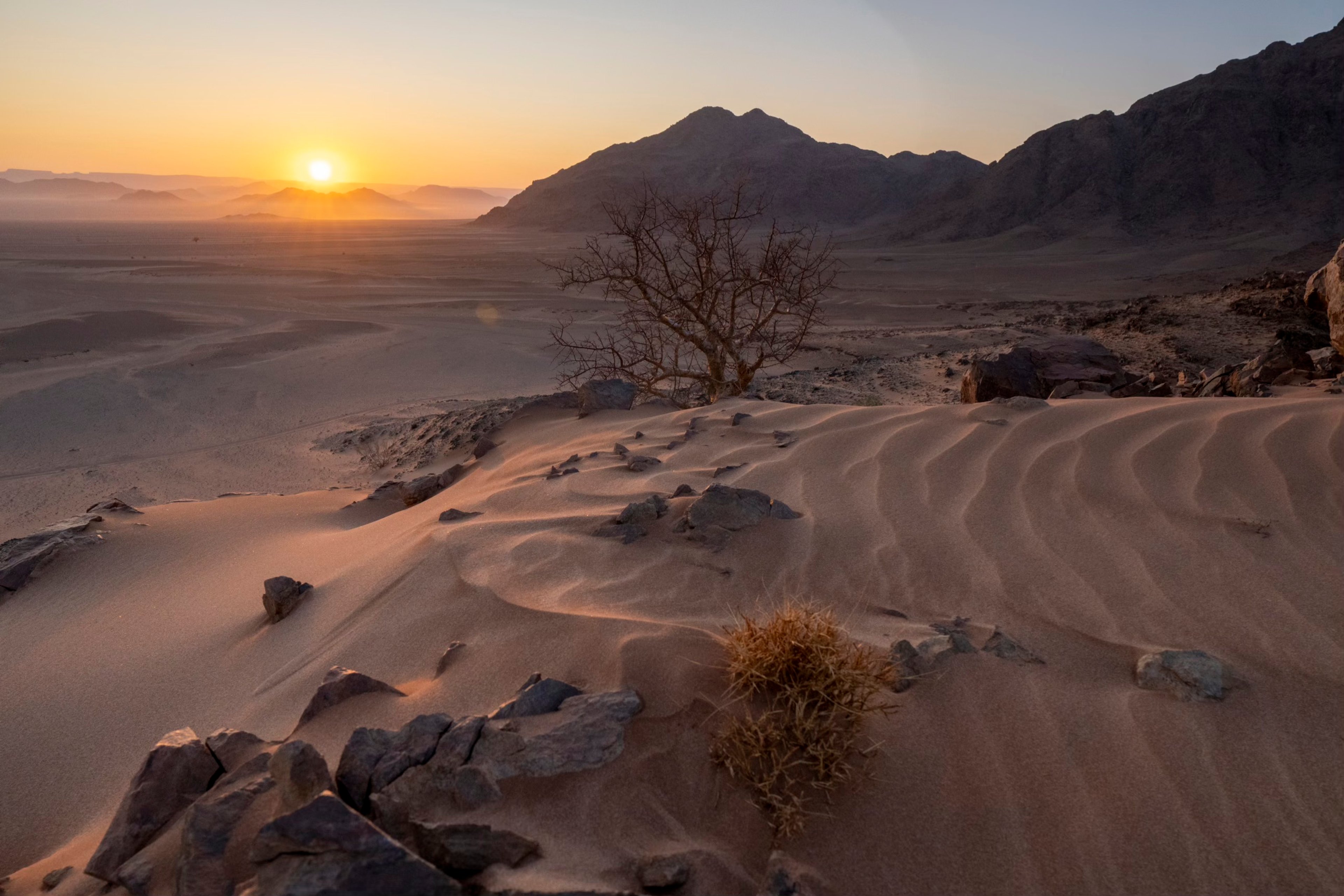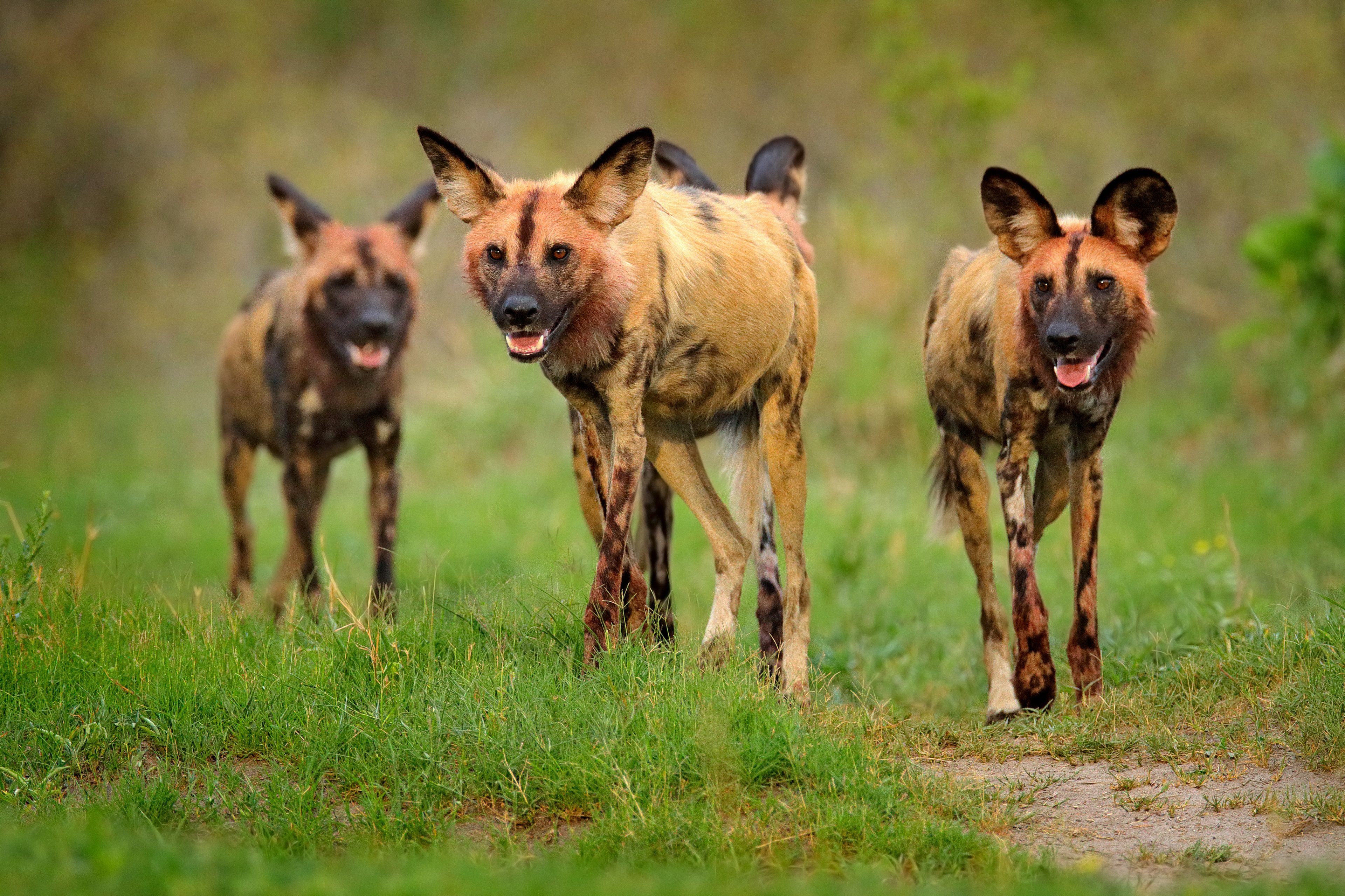“Elephants will remember you all their life – I love their intelligence, their cleverness and their strong memory.” – Edwin Lusichi, head keeper, Sheldrick Wildlife Trust
Elephants are nature’s gentle giants. Their matriarchal energy is so powerful that a deep reverence washes over you in their presence. When I am out in the wild watching these giants in silence, I reflect on what the world would look like if humans moved around this planet with such grace, elegance and care. How would it feel? What kind of children would we raise if we had such empathy, sensitivity, intelligence, memory and respect?
These deeply sensitive, playful, intelligent mammals are the master architects of the bush. Their ability to spread seeds, create water troughs and clear pathways for other animals with their feet and trunks are essential building blocks for biodiversity. But these sentient creatures are often misunderstood. And sadly, years of drought throughout much of East Africa, coupled with a meteoric rise in the human population, are encroaching upon wilderness areas and ancient migration routes. This rapid expansion puts all wildlife, particularly elephants, under great duress with sharp spikes in human-wildlife conflict.
Conservationists, rangers, organizations like the Kenya Wildlife Service and Save the Elephants, rehabilitative sanctuaries and, most importantly, local communities are banding together to protect this keystone species. Many of you will be familiar with the Sheldrick Wildlife Trust in Nairobi, a longtime bastion of conservation and the world’s first-ever elephant orphanage, but perhaps fewer know of Reteti? This groundbreaking sanctuary in northern Kenya is a pioneer of grassroots conservation. It’s the first elephant sanctuary wholly owned and operated by local Samburu people, championing the rising belief that conservation needs to start from the ground up.
Cause and effect: community-led conservation
Seventy percent of Kenya’s wildlife lives outside the country’s national parks and reserves. For elephants, their size, appetite and the ancient migratory patterns embedded in their consciousness create a complex matrix exacerbated by swelling human populations, climate change and an ever-shrinking wilderness. With less food available and new infrastructure like highways and farms interrupting those annual migratory journeys, crop raiding and human-wildlife conflict have become a sad inevitability. To imagine a world without elephants is simply unbearable, and their decline in numbers from 5 million just 100 years ago to 450,000 today is devastating. Without support from the communities living closest to these animals, the future of conservation is futile. But all is not lost.
Founded in 2016, Reteti’s impact is extraordinary and multi-faceted. With all staff recruited from the local community, this community-led approach has sparked drastic social, cultural and economic change for local Samburu women. Many of these women now work with the elephants as keepers and tend to the goats that provide nutritious milk for these thirsty orphans – which guzzle up to 24 liters daily. This endeavor is a living example of our vision statement “If African women rise, wildlife will thrive!”
This switch to goats’ milk has deeper reverberations for the community, generating essential income. Reteti receives support from the Northern Rangelands Trust, which exists to develop community conservancies run by Kenyans, fostering peace and prosperity for local people. Today, the Trust has 43 member conservancies encompassing 19 tribes spread across 24,324 square miles. The understanding and respect that Reteti’s initiatives have built between livestock farmers, locals and elephants are transforming the trajectory for elephants in this region.






